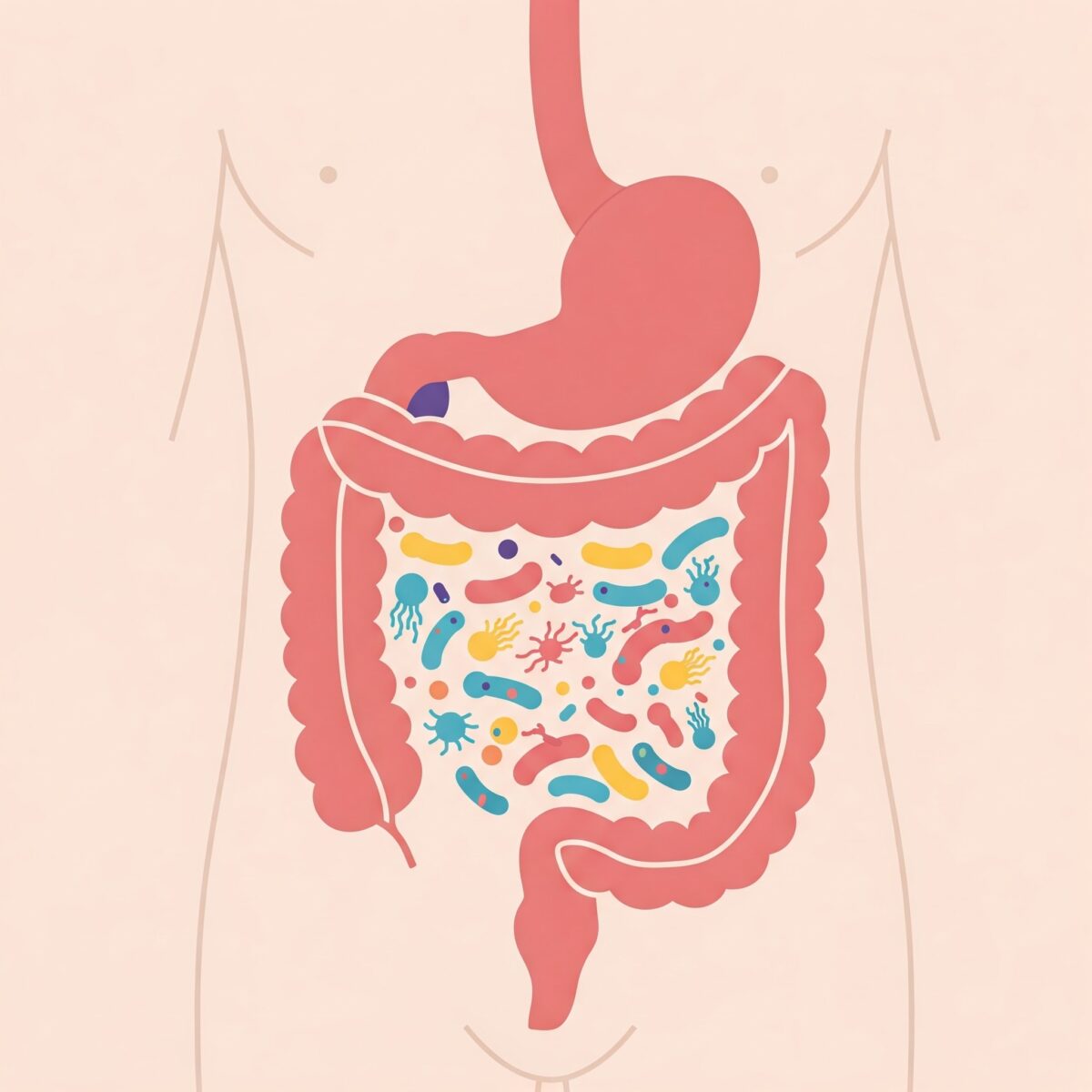Imagine a bustling city within you. Trillions of residents, each with a crucial job, working tirelessly to keep you thriving. This isn’t science fiction; it’s your gut microbiome. And let me tell you, it’s the unsung hero of your health revolution! In fact, research indicates that up to 90% of all diseases can be traced back in some way to the gut and health of the microbiome. That’s a staggering number! It’s time we gave this microscopic metropolis the attention it deserves. Because when your microbiome flourishes, so do you. But when it falters? Well, that’s where the trouble begins. Let’s dive deep and discover how to cultivate a thriving inner ecosystem, boosting your autoimmune protection, anti-inflammatory powers, and overall well-being. This isn’t just about feeling good today; it’s about building a resilient, vibrant future. So, are you ready to unlock the secrets to a healthier, happier you? Let’s get started.
Your Gut: The Unsung Hero of Your Health Revolution!
Your gut microbiome is a complex community of trillions of microorganisms, including bacteria, fungi, and viruses, residing in your digestive tract. Think of it as a diverse rainforest, teeming with life. This ecosystem plays a pivotal role in numerous bodily functions. It’s not just about digestion; it’s about your entire well-being. A healthy microbiome aids in nutrient absorption, synthesises essential vitamins like K and B, and strengthens your immune system. It acts as a formidable barrier, preventing harmful pathogens from invading your body.
The Powerhouse Within: Understanding Your Gut Microbiome
But here’s the kicker: your microbiome is unique. It’s influenced by genetics, diet, lifestyle, and even your environment. No two microbiomes are exactly alike. This individuality is why personalised approaches to gut health are so important. What works for one person may not work for another. So, how do you know if your microbiome is thriving or struggling?
When the Gut Goes Rogue: The Consequences of an Unhealthy Microbiome
An unhealthy microbiome, or dysbiosis, occurs when the balance of beneficial and harmful bacteria is disrupted. This imbalance can trigger a cascade of health issues. And I mean a lot of them. Picture a city where the infrastructure is crumbling, and chaos reigns. That’s what dysbiosis looks like inside your body.
When your gut’s microbial balance is off, you might experience digestive discomfort, such as bloating, gas, and irregular bowel movements. But the problems don’t stop there. An unhealthy microbiome can weaken your immune system, making you more susceptible to infections and autoimmune diseases. It can also contribute to chronic inflammation, a root cause of many health problems, from heart disease to arthritis.
Moreover, emerging research links gut dysbiosis to mental health issues, including anxiety and depression. The gut-brain axis, a complex communication network between your gut and brain, plays a crucial role in mood regulation. When your gut is out of whack, it can send signals to your brain, affecting your emotional well-being. You might find yourself feeling sluggish, irritable, or simply “off.” It’s not just a feeling; it’s a biological reality.
Short-Term and Long-Term Health Risks: The Domino Effect
Let’s break down the immediate and long-term consequences of an unhealthy microbiome. The short term risks are often uncomfortable, but manageable. Think of them as warning signs, telling you to pay attention to your gut health.
- Digestive Discomfort: Bloating, gas, constipation, diarrhea – these are your body’s cries for help.
- Fatigue: Feeling constantly tired, even after a good night’s sleep, can be a sign of gut dysbiosis.
- Skin Issues: Acne, eczema, and other skin conditions can flare up when your gut is imbalanced.
- Food Intolerances: You might find yourself reacting to foods you previously tolerated well.
These short-term issues can significantly impact your daily life, affecting your energy levels, mood, and overall well-being. But the long-term risks are even more concerning.
- Autoimmune Diseases: Gut dysbiosis can trigger or exacerbate autoimmune conditions like rheumatoid arthritis, lupus, and multiple sclerosis. When your gut lining is compromised, undigested food particles and toxins can enter your bloodstream, triggering an immune response. Your immune system might start attacking your own tissues, leading to chronic inflammation and autoimmune diseases.
- Chronic Inflammation: Persistent inflammation is a silent killer, contributing to heart disease, diabetes, and even cancer. An unhealthy microbiome can perpetuate this inflammatory state, increasing your risk of chronic diseases.
- Mental Health Disorders: The gut-brain connection is undeniable. Chronic dysbiosis can contribute to anxiety, depression, and other mood disorders. The gut produces neurotransmitters like serotonin, which play a crucial role in mood regulation. An imbalanced microbiome can disrupt this production, affecting your mental health.
- Metabolic Disorders: Gut bacteria play a role in regulating blood sugar levels and metabolism. Dysbiosis can contribute to insulin resistance, obesity, and type 2 diabetes.
- Increased Risk of Infections: A weakened immune system due to gut dysbiosis makes you more susceptible to infections. Your gut acts as a barrier, preventing harmful pathogens from entering your bloodstream. When this barrier is compromised, you’re more vulnerable to illness.
These long-term risks underscore the importance of maintaining a healthy microbiome. It’s not just about addressing immediate symptoms; it’s about safeguarding your long-term health and well-being.
Cultivating Your Inner Garden: 9 Ways to Boost Your Microbiome
Alright, let’s get to the good stuff. How do you cultivate a thriving microbiome? Here are nine evidence-based strategies to boost your gut health:
- Embrace a Diverse, Plant-Rich Diet:
- Variety is the spice of life – and the key to a healthy microbiome. Eat a wide range of fruits, vegetables, whole grains, and legumes. Each plant food contains unique fibres and polyphenols that feed different beneficial bacteria.
- Aim for at least 30 different plant foods per week. This diversity provides a broad spectrum of nutrients, supporting a diverse and resilient microbiome.
- Focus on fibre-rich foods. Fibre acts as a prebiotic, feeding your beneficial bacteria. Good sources include oats, beans, lentils, and apples.
- Actionable tip: Start a food journal and track how many different plants you eat in a week. Try to increase that number gradually. You’ll be surprised how much you can add.
- Fermented Foods: Your Gut’s Best Friends:
- Fermented foods are rich in probiotics, live microorganisms that can replenish and diversify your gut bacteria.
- Incorporate foods like yogurt (with live cultures), kefir, sauerkraut, kimchi, and kombucha into your diet.
- Start with small servings and gradually increase your intake to avoid digestive discomfort. Some people are very sensitive to fermented foods, so start slow!
- Actionable tip: Make your own sauerkraut or kimchi at home. It’s easier than you think and a fun way to experiment with flavours.
- Limit Processed Foods, Sugar, and Artificial Sweeteners:
- Processed foods, high in sugar and artificial sweeteners, can disrupt your gut microbiome, promoting the growth of harmful bacteria.
- These foods often lack fibre and nutrients, depriving your beneficial bacteria of the fuel they need to thrive.
- Reduce your intake of sugary drinks, fast food, and packaged snacks.
- Actionable tip: Read food labels carefully. Avoid products with excessive added sugars, artificial sweeteners, and preservatives.
- Prioritise Prebiotics:
- Prebiotics are non-digestible fibres that feed your beneficial bacteria. They act as fuel, promoting the growth and activity of these microorganisms.
- Good sources of prebiotics include onions, garlic, leeks, asparagus, bananas, and oats.
- Incorporate these foods into your daily meals to support a healthy microbiome.
- Actionable tip: Add a sliced banana to your morning oatmeal or include onions and garlic in your evening stir-fry.
- Manage Stress:
- Chronic stress can negatively impact your gut microbiome. The gut-brain axis is highly sensitive to stress hormones like cortisol.
- Practice stress-reducing techniques such as meditation, yoga, deep breathing exercises, and spending time in nature.
- Prioritise self-care and ensure you get adequate sleep.
- Actionable tip: Try a 10-minute guided meditation before bed or take a walk in a park during your lunch break.
- Get Enough Sleep:
- Sleep is essential for overall health, including gut health. Disrupted sleep patterns can affect your microbiome.
- Aim for 7-9 hours of quality sleep per night.
- Establish a regular sleep schedule and create a relaxing bedtime routine.
- Actionable tip: Create a calming bedtime routine. This could include a warm bath, reading a book, or listening to soothing music.
- Exercise Regularly:
- Physical activity can positively influence your gut microbiome. Exercise promotes the growth of beneficial bacteria and reduces inflammation.
- Aim for at least 150 minutes of moderate-intensity exercise per week, or 75 minutes of vigorous-intensity exercise.
- Find activities you enjoy, such as walking, running, swimming, cycling, or dancing. Consistency is more important than intensity.
- Exercise not only benefits your gut but also improves your overall health, including cardiovascular health, mental well-being, and sleep quality.
- Actionable tip: Schedule your workouts like appointments in your calendar. This helps ensure you prioritise them. Even a short walk during your lunch break can make a difference.
- Consider Probiotic Supplements (With Caution):
- Probiotic supplements can be a helpful tool for boosting your microbiome, but they’re not a magic bullet.
- Choose high-quality supplements with diverse strains of beneficial bacteria. Look for products that list specific strains and colony-forming units (CFUs).
- Consult with a healthcare professional or registered dietitian before starting any probiotic supplement, especially if you have underlying health conditions.
- Remember, supplements should complement a healthy diet and lifestyle, not replace them.
- Actionable tip: If you’re considering a probiotic, research different strains and their specific benefits. For instance, Lactobacillus rhamnosus GG is known for supporting immune function, while Bifidobacterium bifidum can aid in digestion.
- Minimise Antibiotic Use (When Possible):
- Antibiotics can disrupt your gut microbiome by killing both harmful and beneficial bacteria.
- Use antibiotics only when absolutely necessary and as prescribed by your doctor.
- Discuss with your healthcare provider about strategies to minimise antibiotic use, such as preventative measures and alternative treatments.
- After a course of antibiotics, focus on rebuilding your microbiome with a diverse diet, prebiotics, and probiotics.
- Actionable tip: Explore natural remedies for common infections and discuss them with your doctor. Sometimes, lifestyle changes and targeted supplements can help manage minor illnesses without resorting to antibiotics.
Putting It All Together: A Holistic Approach to Gut Health
Boosting your microbiome is not a quick fix; it’s a lifestyle commitment. It requires a holistic approach, encompassing diet, stress management, sleep, and exercise. Small, consistent changes can make a significant difference in your overall health and well-being.
- Start small: Don’t try to overhaul your entire lifestyle overnight. Begin by incorporating one or two new habits at a time. For example, add a serving of fermented food to your daily routine or commit to a 10-minute walk each day.
- Be patient: It takes time for your microbiome to adapt and flourish. Give yourself time to see results. Consistency is key.
- Listen to your body: Pay attention to how different foods and lifestyle changes affect your gut health. Keep a journal to track your progress and identify patterns.
- Seek professional guidance: If you have persistent digestive issues or other health concerns, consult with a healthcare professional or registered dietitian. They can provide personalised recommendations and help you develop a tailored plan.
- Stay informed: Gut health research is constantly evolving. Stay up-to-date on the latest findings and incorporate new insights into your lifestyle.
The Future of Your Health Begins in Your Gut
Your gut microbiome is a powerful ally in your quest for optimal health. By nurturing this inner ecosystem, you can strengthen your immune system, reduce inflammation, and improve your overall well-being. Remember, it’s not just about what you eat; it’s about how you live. Stress, sleep, and exercise all play a crucial role in shaping your microbiome.
Think of your gut as a garden. You need to tend to it carefully, providing the right nutrients, removing weeds (harmful bacteria), and creating a balanced environment. When your garden flourishes, so do you.
As you embark on this journey to cultivate a thriving microbiome, remember that you’re not just improving your gut health; you’re investing in your future. You’re building a foundation for a healthier, happier, and more resilient you. So, take the first step, embrace the power of your gut, and unlock the incredible potential within. Your body will thank you!
Get help to protect and grow your business faster
Find out more about Lifestyle Improvement Club Corporate Membership
Subscribe for free lifestyle improvement tips reviews and money saving ideas
Read more lifestyle improvement articles and view videos for free
Read more articles and view videos :
- How to naturally boost gut microbiome for autoimmune disease prevention and reduced inflammation
- Best plant-based diet for diverse gut bacteria and long-term microbiome health
- Effective strategies to rebuild gut flora after antibiotic use and improve immune function
- How to manage stress and improve sleep to promote healthy gut microbiome balance
- What are the best prebiotic and probiotic foods to incorporate for optimal gut health and digestion
Relevant hashtags:
- #GutHealthRevolution
- #MicrobiomeBoost
- #AutoimmuneWellness
- #PlantPoweredGut
- #HolisticHealthHabits
- #CheeringUpInfo
- #CheeringupTV
How to naturally boost gut microbiome for autoimmune disease prevention and reduced inflammation










